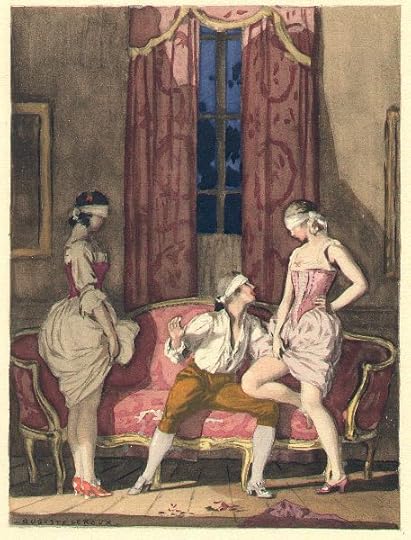Jude Knight's Blog, page 135
January 3, 2016
Why I love writing villains
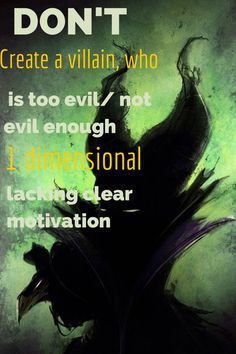 I don’t want to think too hard about what this says about me, but I love writing villains.
I don’t want to think too hard about what this says about me, but I love writing villains.
I enjoy creating characters of any kind, and I’ll happily spend days answering questionnaires about my main characters. I really enjoy seeing the people in my head coming to life on the screen as I type, and I’m often surprised by how strong their opinions are about the way the story should go.
But I particularly love listening to and watching my villains. The brakes come off, and I give them the kind of dialogue that suits their personality: sociopath, or spoilt young man, or self-centered society beauty, or thug.
In the stories I’ve written so far, I’ve had some of each, and my current work-in-progress features a return of the sociopathic society blade, the Earl of Selby, from Farewell to Kindness, and two nasty friends.
Even more than other supporting characters, villains need a complex personality and a convincing backstory. No matter how good the protagonists are, if the villains aren’t convincing, the conflict in the story isn’t convincing, and the happy ending isn’t nearly as satisfying. A good story needs an excellent villain.
Here’s how I write villains:
I pick up things that frighten, worry, or annoy me – in characters on shows, or people in real life. What are the character flaws that cause this response in me? What would the people be like if those flaws were magnified and their good qualities absent or reduced?
I think about the villain’s past. What terrible things have they done in the past? What terrible things have been done to them? Are they victims lashing out or are they just trouble makers? Were they deprived of love as children or were they born that way?
What are their redeeming qualities? Do they love their cat? Collect bone china? Have a soft spot for orphans?
When a reader tells me that they loved to hate my villain, I know I’ve done a good job.
Here’s Selby with one of his closest friends. My heroine Prue has denied them access to her murdered mistress’s bedchamber:
Selby stopped in the doorway and looked straight at Prue for the first time. “Is this the one, Annie?” He didn’t wait for Annesley’s nod, but continued, “I’ll remember you, too. Worth, isn’t it? One day soon, Worth, my friends and I will find out just what you are worth.”
“That’s a good one, Sel,” Annesley said. “Just what you are worth, yes.”
Selby ignored the interjection to peer at Prue in the dimly lit hallway. “Do I know you?”
Prue shook her head. It was true enough. Nobody knew her except, perhaps a little, David.
“She’s the housekeeper, Sel,” Annesley told him. “She probably let you in when you came to see The Diamond.”
“It’s not that,” Selby said. “I have it! She looks a bit like my wife.”
“Which one?” Annesley asked, the question setting him sniggering. “Which one? That’s a good one, Sel.”
Selby stared at Prue a moment more, while she lowered her face to hide her chin; the feature she shared with her sister.
Selby’s next words appeared to be for himself rather than Annesley.
“No. Just the general shape of the face. There must be a thousand women in England who look a bit like Chassie. And she doesn’t have any relative called Worth.”
“Are you coming, Sel?” Annesley said, impatiently. “We can’t swive The Diamond tonight, so we need to find another whore.”
(This post was first published on Caroline Warfield’s blog in July last year.)



December 30, 2015
Wickedness on WIP Wednesdays
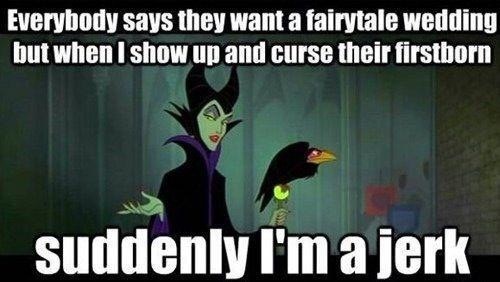 In our fictional worlds, virtue triumphs—it is probably just as well, therefore, that the villains don’t know they’re fictional, so they lay their mischievous, selfish, or downright wicked plans, sure that they will win the day.
In our fictional worlds, virtue triumphs—it is probably just as well, therefore, that the villains don’t know they’re fictional, so they lay their mischievous, selfish, or downright wicked plans, sure that they will win the day.
Today’s work-in-progress Wednesday is dedicated to the ways they act. I’m looking for an excerpt—I say eight to ten lines, but whatever you need to give us a feeling for what’s going on—that shows your villain (male or female, an irritation or an evil danger) doing something that displays their real character.
My current work-in-progress is the story of David Wakefield, best friend of Rede, the hero of Farewell to Kindness. David and his heroine are private detectives back when the name for such people was thief taker, and Embracing Prudence (set earlier in the same year as Farewell to Kindness) includes one of the villains who so complicated life for Rede and Anne.
Here is the Earl of Selby. He has just blackmailed the courtesan into giving him a night in her bed.
“Tiv won’t be happy,” the Earl gloated.
“You will be, my Lord. I guarantee it,” Miss Diamond replied, her voice a husky purr.
The Earl caught up his hat and walking stick, and in one fluid movement, backed the courtesan against the wall, trapping her with his stick held across her neck.
“I’ll collect on that guarantee,” he said, his own purr sounding of threat rather than promise.
Miss Diamond did not react, standing impassively within the cage he’d formed of his body. He leaned the last few inches and slowly, deliberately, licked the side of her face, from her jaw up to her eyebrow, then grimaced.
In another supple twist, he was off her and heading for the door.
“Don’t wear powder tomorrow night,” he instructed, as he left.



December 26, 2015
The top ten reasons I read (and write) write historical romance
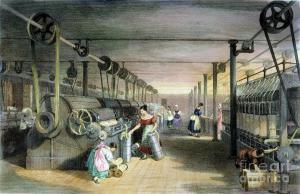 “Those who cannot remember the past are condemned to repeat it.” (George Santayana)
“Those who cannot remember the past are condemned to repeat it.” (George Santayana)Through the lens of history, we can more clearly see our own times. The Regency and Georgian eras fascinate me. There was a growing disparity between rich and poor, privatisation of public good properties, wars and rumours of wars, rapid technological changes with unpredictable outcomes. Sound familiar?
Although I write to entertain, I also write to inform, and in doing so to hold up a mirror to our own times.
“The past is a foreign country; they do things differently there.” (L.P. Hartley)
The similarities are challenging; the differences are fascinating.
I continually trip over things in my reading and my research for writing that astound, horrify, or delight me. Did you know that between a quarter and a half of all women in the early 19th century had ‘Mary’ as one of their first names? That an estimated one in five women in London made income from the sex trade? That the man who invented one of the world’s earliest self-propelled wheelchairs did so after demonstrating another invention: the world’s first roller skates?
I love to read about history, and now I’m not wasting time, I’m doing research.
“I like reading novels because it provides insight into human behaviour.” (Claire Danes)
We learn about people by meeting them; by watching them. In historical novels, the people we meet face different challenges to our own, have been moulded by a different culture, must react to a different context.
But they are still people. I want to read about people who are real to me while I’m in the book, and stay with me when I close it.
I know I’ve captured a character when my readers discuss their motives and their beliefs. It’s enormously thrilling when someone explains to me why one of my characters thought, felt, or did something, and I have an ‘Aha’ moment because the thought is new to me but they’re right.
I read to be entertained
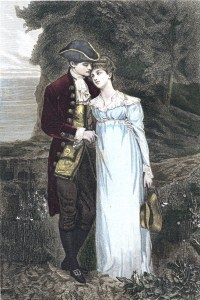 “These boys in books are better.” (Carrie Hope Fletcher)
“These boys in books are better.” (Carrie Hope Fletcher)Knights, Dukes, Earls, handsome rogues and pirates; what’s not to like? Let’s face it; gorgeous men in cravats and knit pantaloons are hot. And hot men who are considerate and respectful are even hotter.
Fletcher’s song points out that real life men can’t live up to the standard set in Twilight, Deadly Instruments, and the like. And any girl who stays single till she finds someone as good as her book boyfriend is in for a long wait.
“I read for pleasure and that is the moment I learn the most.” (Margaret Atwood)
Reading taught me that the kind are rewarded, that perseverance will win in the end, that love is worth striving for. That you can start a fire with spectacles and that sharks can’t swim backwards. That lying on a frozen over pond spreads your weight so you are less likely to break through.
Ideas; concepts; principles; facts. I’ve learned all of those from reading. I read for pleasure. And I write books that I hope others will read for pleasure; books with strong determined heroines, loving heroes, compelling story lines, and convincing challenges.
I read to escape, to take a micro-holiday
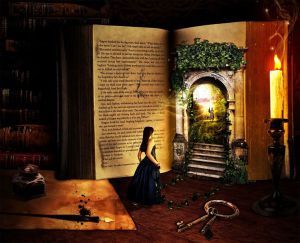 “I have never known any distress that an hour’s reading did not relieve.” (Charles de Montesquieu)
“I have never known any distress that an hour’s reading did not relieve.” (Charles de Montesquieu)I lived more than 50 years with an undiagnosed condition that gave me chronic tiredness and constant pain. In that time, I raised four children, two with serious health conditions, and fostered two others. We entered adolescent hell with one of them and didn’t emerge for ten years. Reading allowed me the break I needed.
When people say that historical romance (or science fiction, or fantasy, or mystery novels) are escapism, I agree. Any book that captures your imagination allows you to escape whatever distress you may be in. The best books strengthen and inform you, sending you back into reality better able to deal with your challenges. But even the most flagrant chewing gum for the mind gives you time to recharge.
“You can travel the world and never leave your chair when you read a book.” (Sherry K. Plummer)
And not just the world! I want to go somewhen else for my book holiday. Travel, so we are told, broadens the mind. In historical romances, I am able to travel to another time. In the hands of a good writer, I experience the sights, the sounds, the smells, and the stories, and all without the risk of plague, pressganging, or death by tooth infection.
“Reading is a discount ticket to everywhere.” (Elizabeth Hardwick)
I dream of a life of leisure, with nothing to do but flirt with rakes and dance at balls. I’d undoubtedly hate it in practice. I like being busy and useful. But I can have that in a book, and then walk away, back to my real life.
“There’s no real ending. It’s just the place where you stop the story.” (Frank Herbert)
I like happy endings. Some other writers like tragic endings, or even no ending at all. In my view, happy endings are better. Every writer has to choose where to start and where to stop the story, so why not choose the bit that feels good?
The romance novel’s ‘happily ever after’ is not about perfect resolution of all problems; it’s about convincing the reader that the protagonists will support each other through whatever problems arise.
I read to learn to write better
 “I believe that writing is derivative. I think good writing comes from good reading.” (Charles Kuralt)
“I believe that writing is derivative. I think good writing comes from good reading.” (Charles Kuralt)Reading good books gives us the sound of good language. It teaches us how plots work, how to show character rather than telling it, how to make choices that show the theme of the book, how to use words to create atmosphere, how to write dialogue that sizzles.I believe I need to do two things to be a good writer. Read a lot. Write a lot. That’s all.
(Originally written for Nicole Zoltack’s blog)



December 23, 2015
Food and drink on WIP Wednesday
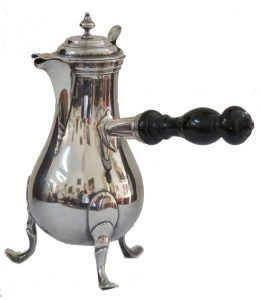 Here in New Zealand it is Christmas Eve, and I’m about to make the first of a number of celebratory salads for Christmas dinner. In honour of the role that food plays in our celebrations, I thought I’d post a piece about food. But if your characters manage to get through your work in progress without eating, perhaps you have a drink or even a foodless celebration to share with us.
Here in New Zealand it is Christmas Eve, and I’m about to make the first of a number of celebratory salads for Christmas dinner. In honour of the role that food plays in our celebrations, I thought I’d post a piece about food. But if your characters manage to get through your work in progress without eating, perhaps you have a drink or even a foodless celebration to share with us.
Here’s mine, from Embracing Prudence. Not a celebration, but certainly food—with an added ingredient in one of the items:
She transferred the contents of the tray to a table beside Miss Diamond’s chair: the pot, a cup, a plate of neatly sliced ham, cheese, pickles, and bread, and a plate of tiny iced cakes. Madame watched and Miss Diamond sat compulsively eating one marzipan shape after another. “That will be all,” Miss Diamond said. “Dupont will serve me.”
Dupont followed Prue across the room and closed the door firmly behind her.
Would there be time to get into the book room while they were occupied? She could at least find out whether she could easily pick the lock with the tools she had been carrying in her apron pocket all afternoon.
She had just taken them from her pocket and bent to examine the lock when a loud scream from below sent her jerking upright then plunging back downstairs.



December 20, 2015
Writing realistic rakes in romantic fiction
This post was first published on Quenby Olsen Eisenacher’s blog as part of my blog tour for A Baron for Becky.
In modern historical romantic fiction, the hero is often a rake who sees the error of his ways when he falls in love with the heroine, and—after undergoing various trials—becomes a faithful husband and devoted family man.
Most of those rakes, I suggest, are not rakes at all. They’re what we today would call womanisers or players, but they’re not rakes in the sense that the term was used in Georgian and Regency England. Our rake heroes sleep with multiple lovers (either sequentially or concurrently) or keep a series of mistresses, or both. But back then, the term signified a much more disreputable character. It needed to. Otherwise, most of the male half of Polite Society would have been defined as rakes. And a fair percentage of the female half.
We are talking of a time when one in five women in London earned their living from the sex trade, guide books to the charms, locations, and prices of various sex workers were best-selling publications, men vied for the attention of the reigning courtesans of the day and of leading actresses, and both men and women chose their spouses for pedigree and social advantage then sought love elsewhere.
In those days, a rakehell was defined as a person who was lewd, debauched, and womanising. Rakes gambled, partied and drank hard, and they pursued their pleasures with cold calculation. To earn the name of rake or rakehell meant doing something outrageous—seducing innocence, conducting orgies in public, waving a public flag of corrupt behaviour under the noses of the keepers of moral outrage. For example, two of those who defined the term simulated sex with one another while preaching naked to the crowd from an alehouse balcony.
Drunkenness certainly didn’t make a man a rake—the consumption of alcohol recorded in diaries of the time is staggering. Fornication and adultery weren’t enough either, at least when conducted with a modicum of discretion (which meant in private or, if in public, then with other people who were doing the same thing).
Lord Byron earned the name with many sexual escapades, including—so rumour had it—an affair with his sister. His drinking and gambling didn’t help, either. But none of these would have been particularly notable if they had not been carried out in public.
The Italian adventurer Giacomo Casanova mixed in the highest circles, and did not become notorious until he wrote the story of his life.
On the other hand, William Cavendish, 5th Duke of Devonshire, lived with his wife and his mistress, who was his wife’s best friend. The three did not share the details of their relationship with the wider world, so there was gossip, but not condemnation. Devonshire is also rumoured to have been one of Lady Jersey’s lovers (the mother of the Lady Jersey of Almack fame).
I planned for my Marquis of Aldridge to be a real rake: a person whose behaviour, despite his social status as the heir to a duke, causes mothers to warn their daughters about him. On the other hand, I didn’t want him to be a totally unsympathetic character. After all, not only is he the only hero on the scene for the first half of the book; he’s also going to be the hero of his own book after he has been through a few more trials and tribulations.
He has had mixed reviews since A Baron for Becky was published. Most reviewers like the rogue, and are asking for his story, while still acknowledging that he is a libertine. One or two dislike him heartily, and one said:
Note to author: your main characters were very interesting but you hinted at some type of redemption for one particular character that I just cannot fathom. I challenge you to make me like him better because I disliked him throughout the story.
Now there’s a challenge I can’t refuse!



December 17, 2015
Missed opportunities in WIP Wednesday
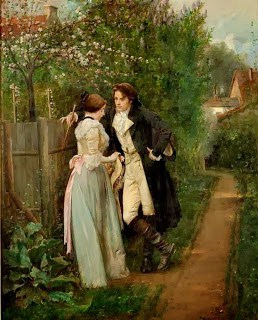 Since I’m a day late, I thought I’d post a few lines about missed opportunities. This could be a meeting that didn’t happen, or words that were not said that could have saved a misunderstanding, or an action not taken, or anything else that could have meant the story’s happy ending came much sooner (bad for the characters, but great for the readers!)
Since I’m a day late, I thought I’d post a few lines about missed opportunities. This could be a meeting that didn’t happen, or words that were not said that could have saved a misunderstanding, or an action not taken, or anything else that could have meant the story’s happy ending came much sooner (bad for the characters, but great for the readers!)
Here’s mine. I needed two bits, from different chapters and different POVs. (And the incident they both refer to was last weekend’s Teatime Tattler post.)
As always, I look forward to reading your pieces. Please post in the comments, and share.
First Prue:
She would be calm; professional; indifferent. She would never let Shadow know how much she longed for him; how often she replayed that final scene between them, searching for the words that would lead to a different outcome. Perhaps if she had stayed… No. He had made his opinion of her quite clear, and she could not trust a man who did not trust her.
Then David:
He’d gone upstairs looking forward to seeing her again more than eagerly than he wished to examine. The guarded look on her face, the stiff way she held herself, stopped him in his tracks.
And her voice. Calm. Devoid of emotion. As if that passionate night had never existed. Or as if it meant nothing to her…
Perhaps, while David had spent five months longing for her, she had moved on, and his presence was an embarrassment.



December 14, 2015
Things I’m grateful for one year on
 A day or two shy of one year ago, I dipped my toe into the water of indie publishing, wrestling with the intricacies of kindle direct publishing and the infamous Smashword’s Meatgrinder program to put Candle’s Christmas Chair up into the e-retailers in time for Christmas.
A day or two shy of one year ago, I dipped my toe into the water of indie publishing, wrestling with the intricacies of kindle direct publishing and the infamous Smashword’s Meatgrinder program to put Candle’s Christmas Chair up into the e-retailers in time for Christmas.
Nearly 70,000 downloads later, Candle is about to be replaced as my permafree by Hand-Turned Tales, three short stories and novella currently at those same two organisations waiting for their review and approval.
And in the meantime, I’ve published two novels (Farewell to Kindness and A Baron for Becky), half-completed another (Embracing Prudence), and written Gingerbread Bride, a novella published in the Bluestocking Belles box set, Mistletoe, Marriage, and Mayhem. The box set has sold close to 11,000 copies, and raised upwards of US$3,500 for The Malala Fund.
So with more than 75,000 downloaded ebooks in my first year as a published romance writer, it’s time to give thanks.
Thanks for my family. For my wonderful husband, who ever and always supports and encourages me. For my sister, who is my first reader. For my family, who accept my neglect with amused tolerance.
Thanks also for the other wonderful authors I’ve met and worked with. For the Bluestocking Belles, without whose support, friendship, encouragement, and incitement, I would not have accomplished nearly so much this year, and especially for Mari Christie and Carol Roddy, my partners in many different kinds of theoretical mayhem. For the Romance Writers of New Zealand, who gave me my first conference, my first award, and my first official role in our industry. For all the writing friends I’ve made on FaceBook and Twitter and in Real Life.
And, of course, thanks for my readers. For the beta readers who coax and cajole me to do my best. For the Belles Brigade, who support all the Belles so magnificently. For the subscribers to my newsletter and my blog. For followers on FaceBook, Twitter, and Pinterest. For anyone who has left a review of any of my books, or even a comment when we’ve passed one another in cyberspace letting me know that my words have struck a chord.
Thank you for a wonderful 2015.



December 9, 2015
Meet-cute on WIP Wednesday
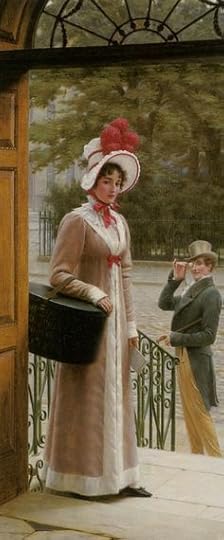 There’s a discussion going on over on Facebook about whether the hero and heroine should meet in the first few pages in a romance novel, and I’m having my usual reaction to the ‘should’ word. But at least I have my topic for work-in-progress Wednesday!
There’s a discussion going on over on Facebook about whether the hero and heroine should meet in the first few pages in a romance novel, and I’m having my usual reaction to the ‘should’ word. But at least I have my topic for work-in-progress Wednesday!
How did your hero and heroine meet? Give me a few lines from your work-in-progress, and I’ll give you mine from Hand-Turned Tales, which comes out next week. (First meet in your work-in-progress. It’s okay if they’ve met before.)
Hand-Turned Tales has four stories in it: three short and a novella, so here are my meetings.
First, The Raven’s Lady.
The lady Felix was supposedly here to consider as a wife was pretty enough, he supposed, if one liked milk-and-water misses who never looked up from their plates, and who answered every conversational sally with a monosyllable or a giggle.
She had, sadly, changed from the lively child he remembered. But that was long ago, almost another life. She had been nine, and he fourteen, the last time they parted.
The only interesting thing about her now, as far as he could see, was the raven she kept as a pet.
Then All That Glisters.
She stumbled and would have landed in the mud, if firm hands had not suddenly caught her. As it was, in putting her hands out to break the expected fall, she had dropped her burdens. The shopping basket fell sideways, tumbling fruit, vegetables, and the wrapped parcel of meat into a waiting puddle. The bundle from the haberdashers that she carried on her other arm, thankfully, stayed intact and landed on a relatively dry spot.
She took all this in at a glance, most of her attention on her rescuer. A craggy face bronzed by the sun, amused brown eyes under thick, level brows, a mouth that looked made for laughter. He was bundled against the cold wind in a greatcoat, muffler, and cloth cap.
Kidnapped to Freedom.
There! Someone was coming. He straightened in anticipation. Yes, it was her—twelve years older and a mature women, rather than the girl he remembered, but even in the moonlight, he couldn’t mistake her.
She wasn’t alone. He couldn’t take a herd of children with him! What was she thinking?
He stepped out from the sheltering trees. The mask would hide his face, and his voice had never been the same since the last time he had been close enough to Phoebe to speak, when Chan tried to strangle him for the presumption.
And finally, The Prisoners of Wyvern Castle
The earl held out his hand, and Madeline reached for it. Even through her gloves and his, she could feel the strength in his hand, and he made no allowance for the difference in their sizes, so that she had to lean back against the weight of him as he pulled himself up. He was tall, this new husband of hers who couldn’t wait to abandon her at the altar. Tall, lean, and handsome. But very young.
“Thank you, Miss, ah, Countess. What is your name again? I am sorry. I was not listening.”
Madeline had been listening. He was Rupert Frederick George Arthur John Fleming, 7th Earl of Penworth, and Viscount of Clearwater.
“Madeline,” said Graviton, helpfully. “The family calls her Mad.”
Graviton called her Mad. Her mother, who had been all the family to love her, called her Linnie, and she had been Miss Graviton to the rest of the world. No more. Mother was dead, and Miss Graviton was gone, too, wiped out by a few words and her signature on the marriage register.
Your turn.



December 6, 2015
Romantic fiction is feminist
Now there’s a large claim for you. I had a five minute spot at the local book fair on Sunday, and I chose that as my topic, and my blog post today repeats the main points I made.
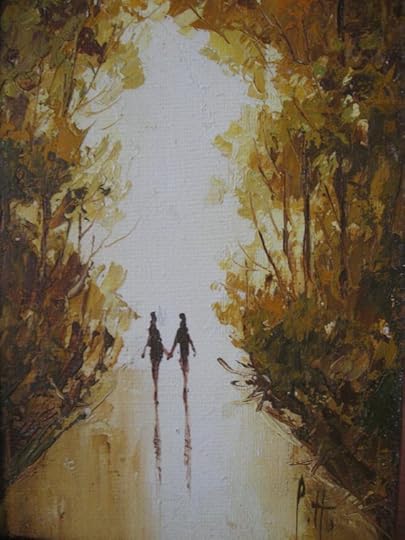
Romantic fiction is feminist almost by definition
Romantic fiction is that genre of fiction where one of the major plot lines is the growing romantic attachment between two of the main protagonists, ending in the hope of a happy future together.
And I’m defining feminism as the belief that women should have the right to the same social, economic, educational, and other opportunities as men, and should be as free as men to make choices about them.
When a genre is written largely by women (80% of romantic fiction authors are women), largely for women (90% of readers), and almost always about women, it has to be about the choices of women.
In other other genres, women are plot devices. In all romantic novels (except in the subgenre of gay fiction with two male protagonists) a women is one of the key protagonists, if not the main protagonist.
And even in the books we all love to hate, when the heroine is TDTL (genre initialism meaning ‘too dumb to live’) and the hero is a creep with a particularly fine set of abs, the plot hinges on the choices made by women. However constrained her rights may be, however constrained her opportunities, the novel exists because of the choices of the heroine. And the novel isn’t over until the heroine gets what she wants.
Today’s romantic heroines are often strong women
Twenty-first century writers create stories for twenty-first century women. While not all readers want to read about strong-minded independent women, I like to write them. I think they’re more interesting, and I think the men who can appreciate them are more interesting, too.
My first book, Candle’s Christmas Chair, features a tradesman’s daughter who is put out that she cannot inherit her father’s business, but who has grown her own, making invalid chairs, and has no intention of giving that up for marriage.
“Papa, have you thought about where you and Mama will go when you retire?”
“After Christmas we will decide a place and a date. Do you have a place you would like, daughter?”
“I do not mind, Papa. As long as it has a workshop big enough for me to make my chairs.”
“You should be making babies, not chairs,” Papa grumbled. “Marry your viscount or choose another man, and give me and Mama grand-babies.”
“I would marry a man who would let me make my chairs,” Min said.
“Ah Min. Your Mama was right. She told me that if I encouraged you I would end up breaking your heart. Min. Little Owl. Face facts. Women aren’t meant to make carriages, even your little ones. I’ve let you make your chairs and sell them, and a very good job you have done of it too. I’ve been very proud of you. But a man doesn’t want his wife to go out to work.”
“You let Mama work in the harness shop,” Min protested.
“Remember that, do you? I had no choice, Min. We didn’t have the money, when we started out, to hire a good harness maker. Mama was the best. But as soon as I could, I replaced her so she could stay home. A man doesn’t want his wife to go out to work. Looking after the home, visiting her friends. That’s enough.”
Not for me, Min wanted to say.
In Farewell to Kindness, the heroine is more traditional in her dreams (and that, too, is a choice). But she is also a champion archer, and uses that ability to save those she loves.
“Who are you? What do you want?” The drink thickened his voice. “If I shout, I’ll wake the whole household.”
“The household are all either below stairs or well above. And you will have, at most, one shout before I put this arrow between your eyes. I have demonstrated I can.” It was a woman’s voice, low and determined.
George glanced back at the arrow, and swallowed.
“You won’t shoot me. You’re a woman.”
“I will shoot you with pleasure, if I must,” the woman said. “But shooting you is not my first choice.”
He pulled himself straight, glaring. “You won’t get away with this. Don’t you know who I am?”
“Do you not know who I am? I am the woman you owe a future to. And I mean to collect. You will give me either my future or my revenge.”
The heroine of A Baron for Becky may be the toughest of the lot. Most of her choices were taken from her a few days after her 15th birthday. She has chosen to endure, and the main plot hinge of the book is the choice she makes about the best path for her and her children
“What do you want for your daughter, Mrs Darling?”
“A better life,” Rose said immediately, suddenly fierce. “A chance to be respectable. A life that does not depend on the whims of a man.”
“The first two may be achievable,” the duchess said, dryly. “The third is highly unlikely for any woman of any station. You expect my son to help you to these goals, I take it.”
Rose was suddenly tired of polite circling. “I was saving so that I could leave this life, start again in another place under another name. But my last protector cheated me and stole from me.
“I do what I must, Your Grace. Should I have killed myself when I was disgraced? I had no skills anyone wanted to buy. I could play the piano, a little; sew, but others were faster and better; paint, but indifferently; parse a Latin sentence, but of what use was that in my circumstances? Should I have starved in the gutter where they threw me?
“Well, I was not given that choice. Those who took me from the gutter knew precisely what I had that others would pay for. As soon as I could, I began selling it for myself, and I. Will. Not. Be. Ashamed.”
Romantic fiction is feminist because it is about choice.
Romantic fiction is also romantic by definition
I’ve heard one feminist critique of romantic fiction that flabbergasts me. Romantic fiction, they say, is anti-feminist because it teaches women to believe that happiness lies in a successful love affair.
Um. Excuse me? Read the label on the box, people. This. Is. Romance. A fictional account of a love affair with a happy ending. Criticising it for having a happy ending is like criticising a cornflakes packet for containing cornflakes.
Different genres have different conventions. In murder mysteries, the killer is always caught and brought to justice. Science fiction novels are predicated on technology that does not exist yet. Neither reflect reality, and readers do not believe that they do.
Do we stop reading thrillers because they teach people not to fight against injustice until the lone hero strolls into town, emotionally scarred and weather-beaten, to throw his exceptional skills into the cause and win against all the odds? Do we stop reading literary novels because they almost universally end unhappily, thus teaching people that happiness is not achievable?
That said, I see many plots that include secondary characters who are successfully single, and I’d like to see more. I have a personal ambition to write a book with a strong secondary plot where the heroine’s best friend decides against marriage because something else brings her more satisfaction. (Of course, in the time period I’m writing about, that means she decides against sex, and yes, people, it is possible.)
Reading romantic fiction is an affirmative action
No other genre attracts the same level of scorn as romantic fiction. Every writer has heard the derogatory names. Mommie-porn. Chick-lit. Bodice-ripper. Or The Sneer. And boy do we know The Sneer! So you write Mills and Boon? Sneer. Oh, like Fifty Shades of Grey? Sneer. Like Barbara Cartland? Sneer. Why three of the most financially successful brands in the history of publishing should attract a sneer is an interesting question.
Those particular brands are used as a dismissal, I suggest, because the speaker believes them to be of poor quality. I’m not going to comment on that, beyond saying that the genre is much much broader than the brands mentioned. Science fiction includes Star Wars rip-off fiction as well as the wonderful The Word for World is Forest. Romantic fiction includes pulp as well as the marvellous The Captive.
A genre is not a description of quality. It is just a convenient way of sorting books so that book sellers and libraries can give readers the type of story they want. Genre and literary novels come in good, bad, and indifferent—as most readers and writers nowadays know, with the exception of a few unregenerate literary snobs.
But somehow, it is still open season on romance. Why? When you look at the insulting labels, all of which call attention to the gender of the writers and readers, it is hard not to draw the conclusion that this unthinking dismissal of romance is an anti-feminist act, and challenging such bigotry is an affirmative action.
So read romantic fiction proudly. By doing so, you are supporting a writer who believes that women should have the same freedom as men to make choices.



December 4, 2015
Welcome to the Belles Holiday Wassailing Tour
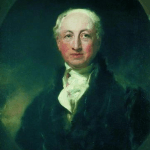
Dr Wren
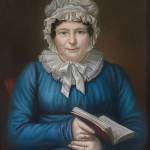
Mrs Wren
Dr and Mrs Wren are delighted to welcome the wassailing party to this progressive Regency dinner.
We have something of a houseful at the moment. Many of the young students that Dr Wren tutors have stayed over in Oxford for our Christmas party, those of our children who live close enough have come home for to celebrate the holiday, bringing their own children, and we have other guests, too, including Mrs Wren’s niece, Mary Pritchard, the two men who are courting her, and the girl who is chasing after one of the men.
This should make the party very entertaining! Come in, join us in a Christmas Carol, catch the person of your choice under the kissing bough, and enjoy the food and drink.
To win a print copy of Farewell to Kindness, with a bookplate signed by all the Belles, plus assorted Belles swag, comment below with an answer to the question. I’ll draw one commenter at random, and prizewinners will be announced at the end of the progressive dinner.
How many novellas are in the Bluestocking Belles’ holiday box set?
 Mary Pritchard, her suitors, and Dr and Mrs Wren, are characters in Gingerbread Bride, a novella in Mistletoe, Marriage, and Mayhem
Mary Pritchard, her suitors, and Dr and Mrs Wren, are characters in Gingerbread Bride, a novella in Mistletoe, Marriage, and Mayhem

Mary Pritchard
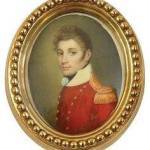
Rick Redepenning
Stranded ashore by injury, naval lieutenant Rick Redepenning rescues Mary Pritchard when she runs into villains. Familiar territory. He has been rescuing his admiral’s daughter since they were both children. The child has become a lovely woman, but she seems oblivious to his interest. Can Rick catch his runaway bride in time for Christmas?
Mary Pritchard is cast on the perilous shoals of London Society by her admiral father’s death. Her loathsome cousin thinks to win her hand and fortune. Mary runs. She has other aunts, and won’t settle for a loveless marriage in place of her dreams. But the hero of those dreams, her girlhood rescuer, couldn’t be interested. Could he?
“Mary, my love,” Mrs Wren says, bring out the wassail. The carolers will be thirsty after that wonderful song.”
“Of course, Aunt Theo.” But Lieutenant Redepenning is before Mary to the bowl. “Here, Miss Pritchard, let me carry that. It is heavy. You bring the cups.”
“I can carry the bowl for Miss Pritchard,” says Viscount Bosville, puffing out his chest.
Mary frowns at them both. “You carry the bowl,” she says to Lieutenant Redepenning, and then hands the cups to Bosville. “There. You carry the cups.” With a cheeky grin, she walks off and leaves them glaring at one another.
How to Make Fireside Wassail VIDEO. An Easy and Tasty Christmas Drink Recipe
 Excerpt from Gingerbread Bride
Excerpt from Gingerbread Bride
She was everywhere, always busy, always in company. More of the Wren offspring arrived, with spouses and children, all delighted to meet Mary, the cousin whose letters from far-flung places had enlivened their lives for many years. She was in demand in the kitchen, where she was making and icing gingerbread shapes for the party supper. She was involved in the last of the decorating.
He gave up, and decided to move his baggage to the inn where he was booked for the night.
“Rick? Are you leaving?” Mary. She stopped in the parlor doorway.
“I’ll be back for the party, Mary, but I’ll leave from the inn in the morning. My father expects me in London tomorrow night. Mary? Will you walk into Oxford with me?”
Just then, Mrs. Wren and two of her daughters came down the stairs.
“Mary, dear, would you help with the kissing bough in the garden? Lieutenant Redepenning, you’re off to the inn? What time do you expect to be back, dear?”
Rick gave some kind of an answer, watching Mary slip away from him again, carried off by her cousins.
Tonight. At some point tonight, he would find her alone, if he had to carry her off into a dark corner of the garden across the dead bodies of all her relatives.
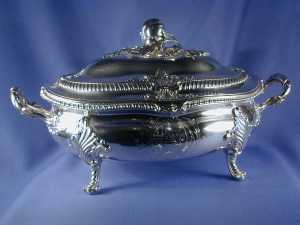 “Another cup of wassail?” Dr Wren asks, beaming.
“Another cup of wassail?” Dr Wren asks, beaming.
“Now, Husband,” says Mrs Wren, “they have many more stops to go before the end of the dinner, and wassail at each house, I have not a doubt.” She looks straight at you as she says, “We are serving soup in the dining room as the first course of this meal you have embarked upon. Please, come and join us in a bowl.”
Dr Wren winks. “Not precisely in the bowl, you understand. It would be a little cramped.”
Regency white soup
Recipe from: John Farley’s London Art of Cooking (1783)
Put a knuckle of veal into six quarts of water, with a large fowl, and a pound of lean bacon, half a pound of rice, two anchovies, a few pepper corns, a bundle of sweet herbs*, two or three onions, and three or four heads of celery cut in slices**. Stew them all together, till the soup be as strong as you would have it+, and then strain it through a hair sieve into a clean earthen pot. Having let it stand all night, the next day take off the scum, and pour it clean off into a tossing-pan. Put in half a pound of Jordan almonds beat fine, boil it a little, and run it through a lawn [fine cloth] sieve. Then put in a pint of cream, and the yolk of an egg, and send it up hot.
With thanks to the Jane Austen Society (Please see link for an in-depth discussion of the recipe)
“Perhaps a little mug of posset to keep the chill from their bones before the next stop?” Dr Wren suggests to Mrs Wren, who relents now that our stomachs are well lined with soup.
“Mary, my love, fetch the posset, if you will.”
Mary is heard to mutter as she leaves the room, “If Viscount Bosville has not consumed the lot.”
But she returns a few moments later carrying mugs and a ladle, and followed by Rick Redepenning with a large cauldron from which fragrant smells are wafting.
“Here,” says Rick cheerfully. “This will keep you warm on your way.”
My Lord of Carlisle’s Posset
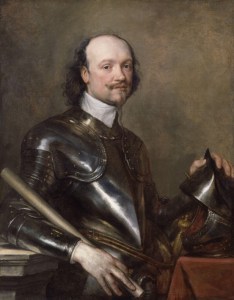
Sir Kenelm Digby
Recipe from: the posthumously published book, The Closet of the Eminently Learned Kenelm Digby Knight (London: 1670) (Please see link for an in-depth discussion of the recipe)
Take a pottle of Cream, and boil in it a little whole Cinnamon, and three or four flakes of Mace. To this proportion of Cream put in eighteen yolks of eggs, and eight of the whites; a pint of Sack; beat your eggs very well, and then mingle them with your Sack. Put in three quarters of a pound of Sugar into the Wine and Eggs, with a Nutmeg grated, and a little beaten Cinnamon; set the Bason on the fire with the Wine and Eggs, and let it be hot. Then put in the Cream boiling from the fire, pour it on high, but stir it not; cover it with a dish, and when it is settlede, strew on the top a little fine Sugar mingled with three grains of Ambergreece, and one grain of Musk, and serve it up.

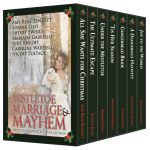 Mistletoe, Marriage, and Mayhem: A Bluestocking Belles Collection
Mistletoe, Marriage, and Mayhem: A Bluestocking Belles Collection
In this collection of novellas, the Bluestocking Belles bring you seven runaway Regency brides resisting and romancing their holiday heroes under the mistletoe. Whether scampering away or dashing toward their destinies, avoiding a rogue or chasing after a scoundrel, these ladies and their gentlemen leave miles of mayhem behind them on the slippery road to a happy-ever-after.
***All proceeds benefit the Malala Fund.***
Amazon | Smashwords | Amazon UK | Amazon Australia | Amazon Canada | Barnes & Noble | iTunes | Kobo
 This is only the first stop in the Belles’ holiday wassailing blog tour, with a different Regency era Christmas carol, dinner selection, and beverage, and wassail recipes at every stop that you can make in the modern kitchen. Keep checking back, and I will add the links to the stops as they become available.
This is only the first stop in the Belles’ holiday wassailing blog tour, with a different Regency era Christmas carol, dinner selection, and beverage, and wassail recipes at every stop that you can make in the modern kitchen. Keep checking back, and I will add the links to the stops as they become available.
4 Dec: Jude Knight: The First Course, Regency White Soup
7 Dec: Nicole Zoltack: The Second Course, Lobster au Gratin
9 Dec: Amy Rose Bennett: The Third Course, A Stuffed Christmas Turkey
11 Dec: Susana Ellis: The Fourth Course, A Yorkshire Pie
14 Dec: Vanessa Riley: The Fifth Course, English Bread
16 Dec: Caroline Warfield: The Sixth Course, Jerusalem Artichoke a la Crème
18 Dec: Sherry Ewing: The Seventh Course, Mince Pies
21 Dec: Mariana Gabrielle: The Eighth Course, Christmas Pudding
Digital Christmas Card by EKDuncan using digital Christmas ornaments of Regency ladies




